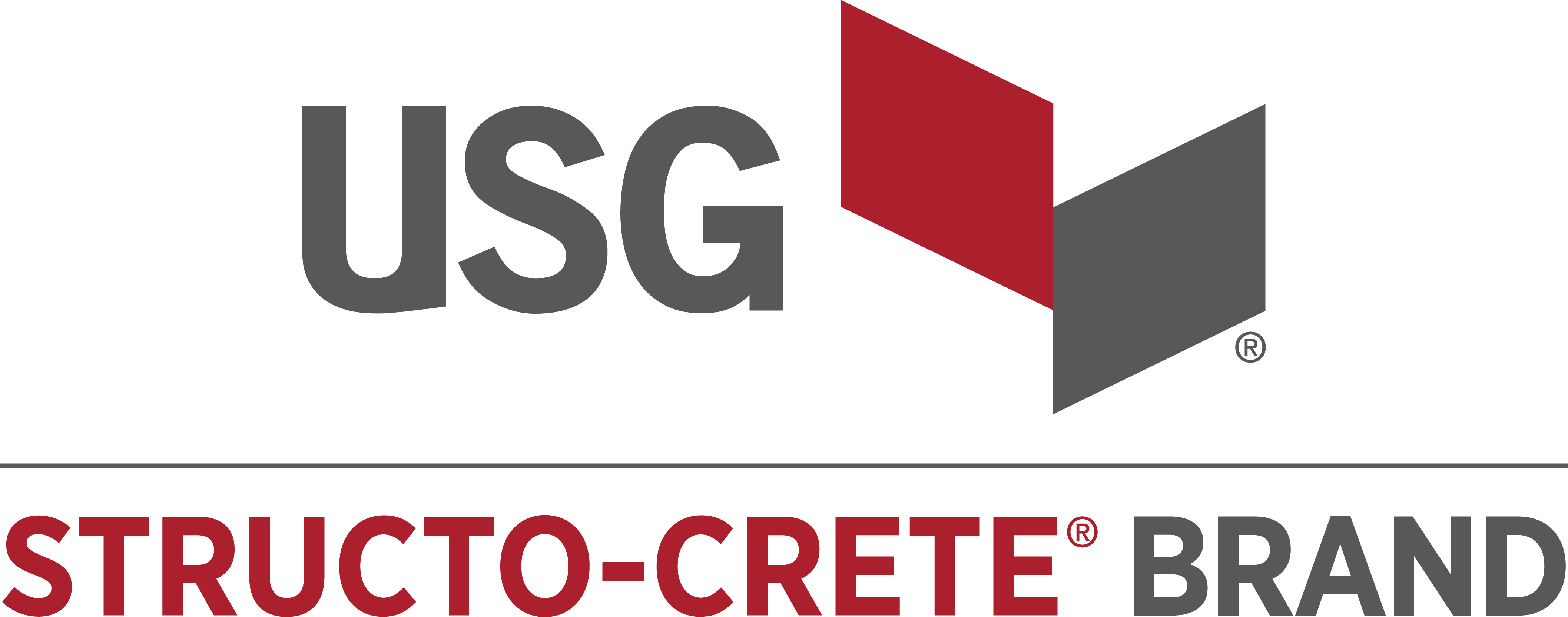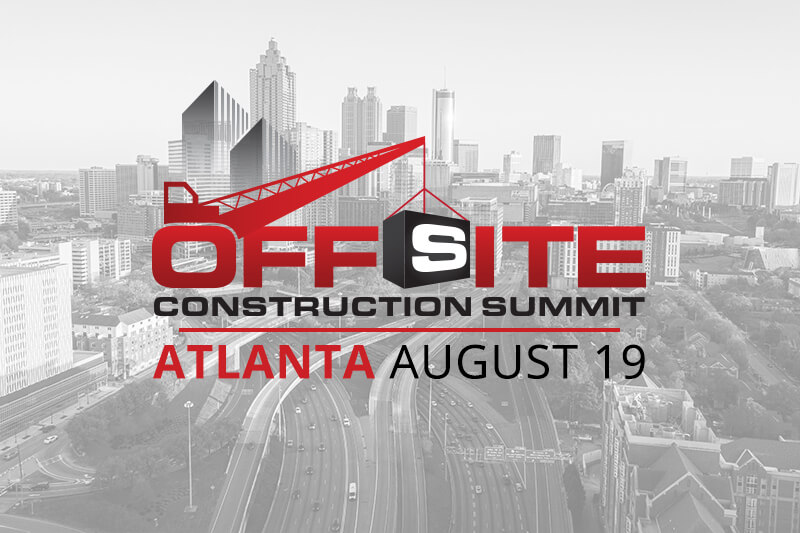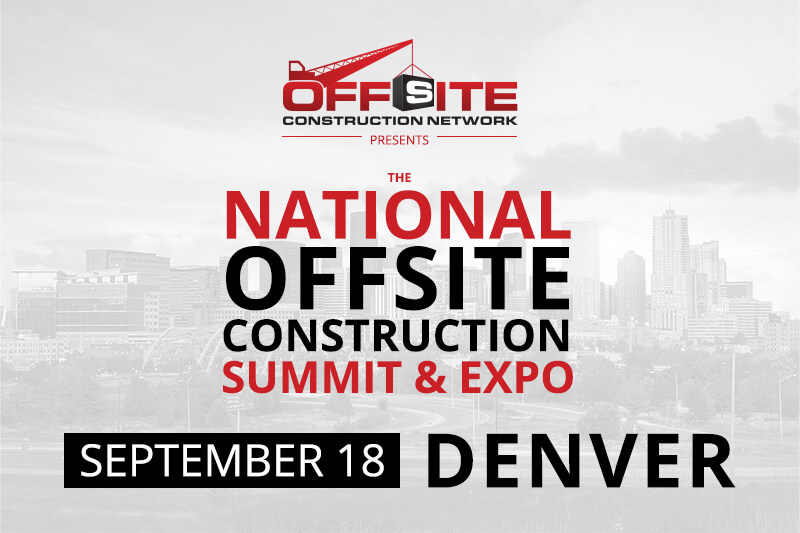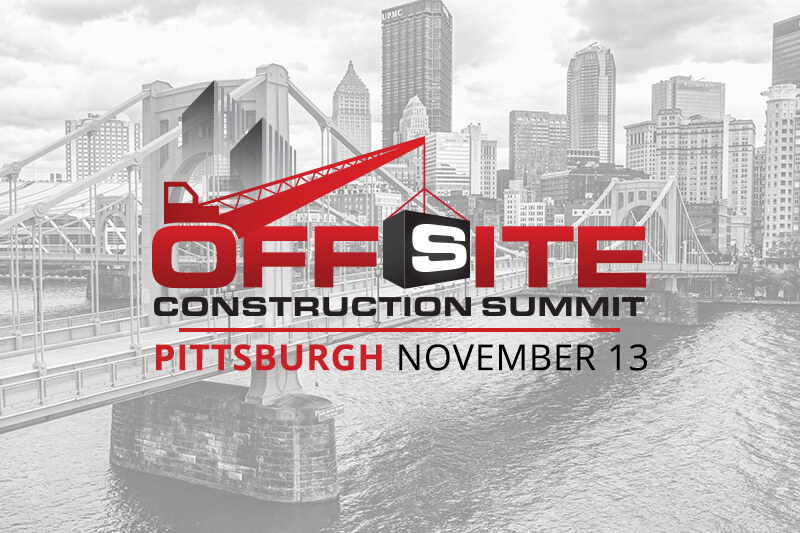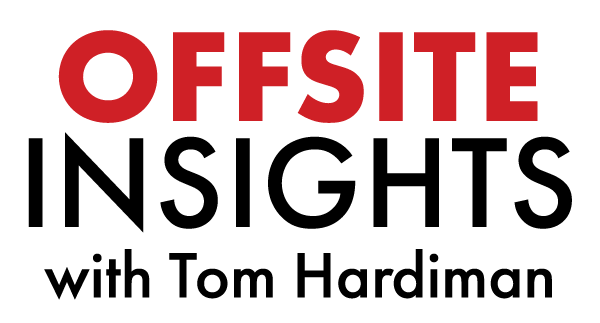
Container-Based Commercial Buildings and the Advantages of Relocatability
An interview with Martha Trela, CEO of UrbanBloc
Martha Trela, CEO of California-based UrbanBloc, discusses the advantages of relocatable buildings created from modified shipping containers and the opportunities that such structures offer. In addition, Martha talks about how container-based buildings meet—and often exceed—state-level building code requirements.
Interview transcript
Tom Hardiman
I'd like to thank today's sponsor for Offsite Insights, USG Structo-Crete Brand structural panels are noncombustible mold moisture termite resistant, dimensionally stable panels for use and sub floor, roof deck or foundation wall assemblies. Structo-Crete Brand structural panels meet the full criteria of ASTM E 136 for use in all types of noncombustible construction. Numerous one, two and three hour fire designs are available for modular panelized and conventionally constructed buildings to meet virtually any application. The panels are easily cut with standard framing tools, rapidly applied using mechanical fasteners and require no adhesive free installation. To learn more, visit www.usg.com/structocrete.
Hello, and welcome to another edition of offsite insights. I'm your host Tom Hardiman. I am super excited today I have with me Martha Trela, who is the CEO of a company called UrbanBloc in California.
Martha, how are you today?
Martha Trela
I'm doing well, Tom, thanks for having me.
Tom Hardiman
Well, thanks for being here. Maybe you could we'll start off, just tell us a little bit about your background, how you came to get into this modular and offsite world? Then we'll talk a little bit about your company.
Martha Trela
Absolutely. Well, I have a bit of an unusual background. I actually initially started off as a pre-med graduate thinking I was going to go into medical school. I ended up getting a master's in business and went into the life sciences industry for over 25 years and was involved in the automatic DNA sequencing industry, which was a great industry as we were sequencing the human genome and going through all that,
Tom Hardiman
I got to say, Wow, you're probably the only person in this industry with that background.
Martha Trela
Yeah, so this wasn't part of the original plan. I happen to be, you know, 25 years into the life science industry, I happen to be on a gourmet food walking tour with some friends in San Francisco, and ran across a project in Hayes Valley called Proxy, which was using refurbished shipping containers to create a little hub of food and entertainment. I found it absolutely fascinating. There was a coffee shop, an ice cream store, a bike shop, a beer garden, and the host explained that the city of San Francisco had found this property. It had been sitting vacant for a long, long time, and the city wanted to activate it. There was a lot of homeless and drug dealing going on. So, they wanted to improve the area.
It just absolutely struck some chord in me kind of looking at how to fight some social issues, but also just the really interesting kind of green, creative aspects of taking a piece of industrial waste like a shipping container and transitioning it into something that really had a lot of social value. I became obsessed with shipping containers and spent about a year really looking at the market, the needs, met my business partner who's an architect who's specialized in shipping container construction. About a year later, took a big leap and jumped into the modular construction industry from a very satisfying and interesting career in the life sciences. It really drew me in and I was really excited about the opportunity, that modular construction and in particular our sort of commercial construction could offer to address some of the social issues and provide value for cities and other areas that we're trying to maybe transition. So that was eight years ago.
Tom Hardiman
And here we are today. That was the beginning of UrbanBloc.
Martha Trela
That was the beginning of UrbanBloc. Yeah. Okay.
Tom Hardiman
Well tell us a little bit about your company, who are the typical customers of UrbanBloc? What markets, things like that?
Martha Trela
Sure. So UrbanBloc is what's called in technical terms that commercial modular manufacture. We have unlike the majority of the commercial or of the modular industry, we've focused on the commercial side of the business, we don't do any residential. We are what's called a design and build firm. So, we work very closely with our customers to design a project and then build it for them. Most of our units are restaurants, ice cream shops, cafes, or kind of in the food universe. We do offices or retail spaces as well. For the most part, we've found that we can offer the most value to customers in this process in the little bit more complicated food type businesses. So, we've become very good kitchen designers, we've become very good at building out, in some cases, very complicated restaurants with hoods, and walk in refrigerators and that sort of thing. So, we have a unique kind of expertise in that area.
Our very first customer was actually the San Francisco Giants, which you'll appreciate with your love of baseball. We came up a really steep learning curve on that project that was a 14 container project. It had a beer garden, a full restaurant, a retail store and had event space. We do work for corporate clients like the Giants. We did another project in Los Angeles, in front of the new soccer stadium. We also worked with developers who are looking to activate some land that they might own or adding maybe an amenity to a mixed use development, or housing development. We also work directly with clients who are owners of businesses who are trying to get a retail space established or build their brand. So, we have a really interesting variety of customers, which makes it particularly rewarding for me to be able to deal with some really nice kind of variety of customers with different needs.
Tom Hardiman
Yeah. So, we’re closer to Washington, DC, on my end. I go to some Washington Nationals games and I notice they have several of these units. We're talking about all modified shipping containers.
Martha Trela
That's our business. Yes.
Tom Hardiman
I think they're super cool. But aside from the cool factor and the buzz around taking a container and turning it into something like a beer garden or an ice cream shop what are some of the advantages of this type of construction? What appeals to your customers?
Martha Trela
There's definitely the cool factor, which for the same reasons I think that drew me in a lot of people are very drawn to this format of a little shipping container that all of a sudden has been transitioned. Beyond that, I think if you look at it from the larger social aspect, these are small units that can be built very quickly. They can be permitted through the state of California or the state of Arizona, where we're licensed in the factory and delivered to a site as a finished building. So, for a client, they can do the necessary site work to accept it, that all of a sudden they when they receive it fully permitted building, and they can be up and running very quickly. So, our lead times are very short. We did a full project in Los Angeles for the soccer stadium that I mentioned, we met the client in January, we delivered in April, and we went through the full design build permitting process. So, speed is definitely a factor.
We did a coffee shop for a client who's been building their brand and for them, this format was far less expensive than it would have been for them to go into an existing retail establishment and try and renovate it. For them, the cost was about 50% less. Now that's not always the case for every project, but particularly in the food area. There's definitely a cost savings for clients who are looking to have a very sophisticated restaurant, bar or ice cream store that is fully permitted delivered, and that can be done at a cost that's very attractive. We also are very involved throughout the design process. So, we get the our units through the Health Department, which is also a very cumbersome process in some aspects. So, we are shepherding our projects really through the full process and very engaged. A lot of customers find huge value in that and having a partner who not only is delivering unit, but who can really get involved throughout the entire process. So that's been a valued aspect of what we are able to offer.
Tom Hardiman
I imagine that's a huge benefit to be able to navigate not only the building codes and permit process, but also the health department. Then to deliver that building, ready to go.
Martha Trela
Yeah, exactly. In many cases, once we deliver the business is up and running within weeks of having been delivered. As you know, and in the retail industry, food, etc, time to revenue is really critical. So being able to get up and running quickly, and to be able to engage with your customer base and provide them the value is a benefit, in addition to just the overall cost structure of the industry. Right?
Tom Hardiman
You mentioned delivering a permanent building. That might raise a question to some of our viewers, you're still building to the same building code as any other structure, correct?
Martha Trela
Absolutely. The state of California has what is called a commercial modular manufacturer. We are obligated to build to the same building code that a permanent building would be built to. In addition to that, as I mentioned we're also obligated to build to the same health code standard that a permanent building would be built to. So, we have during the build process, inspectors come to the factory at least twice to do a rough inspection and a final inspection. We’re very collaborative and we've also invited health departments to come in and see what we do because this type of construction isn't necessarily the norm for what they see. Pretty much universally the health department's and those who interact with our buildings are like, oh, my God, this is such high-quality construction. A lot of that is because building in a factory, we can control the environment in which the building is being built. We always start with the same shipping container format.
So, we know what we're starting with, we can build it out relative to systems and processes that we've developed that are tried and true. We're working with known suppliers, our team is well trained.
So at the end of the day, you're actually receiving a very high quality building that does meet all the codes and standards that are required and there's an additional benefit, which has come into play in a few projects, but our buildings can be moved. So, if you buy a restaurant from us, you're buying an asset and that asset can stay forever in a certain location. Or if you don't have a long-term lease, or there's a change in circumstances, whatever that might be, you could literally disconnect your restaurant and move it somewhere else. So, it's a slightly different business model than traditional construction, which is something a little bit more unique to the shipping container format, because it's designed to be very easily transportable on our national highways and roads, just using a regular flatbed truck.
Tom Hardiman
You can do a lot of things there. One is the relocatability of your entire building. It's very easy to do. It's easy to transport, setup and install. It's also easy to relocate it to a secondary location if you need to. But I imagine there might be some advantage or some benefit of the US as a consumer nation, there's a whole lot of shipping containers sitting around. They're just kind of piling up and you're taking this unused box and turning it into repurposing a container in to a building and then being able to move to a secondary location that seems like the ultimate in flexibility when you consider that that model.
Martha Trela
Again, that was part of what drew me in initially. I had a keen interest in social issues, but also in sustainability and environment. I've heard the shipping container described as industrial waste, because of this just piling up, can be reused and repurposed. Also, in our building methods we have to meet here in California, it's called Title 24, certain energy standards and that sort of thing. So, we're reusing this piece of industrial waste, making it a high energy, highly efficient building, and trying to wherever we can employ LED lighting and other environmentally friendly materials. It’s an opportunity, I think, for us as a highly kind of consumer-oriented society to kind of take a step in, a deep breath and look at the reusability of things that maybe would otherwise just sit there and rust.
Tom Hardiman
Yeah, we need to do that as a society instead of just this throwaway mentality that we tend to have.
Martha Trela
Exactly.
Tom Hardiman
So eight years in, what are you most proud of at UrbanBloc? Project, people, whatever it may be. What is it, there's like, wow, that I really love this, about what we did.
Martha Trela
There are a lot of things I'm really proud of. I'm proud of the projects that we've completed because, ultimately, for me, it's all about the customer and making sure that what we do really solves their problem and meets their needs. Our orientation is all around the customer and again, we're very high touch, we're very collaborative. Having a really happy, satisfied customer at the end of the day is like, oh, my God, people come and they love this business in this location. For me, that's probably the most satisfying thing. We've learned a lot.
Every project is a new learning curve to some degree, and we're getting better and better and better in every project. We never sit back and just say, okay, well now, we're the expert, we know everything. We're constantly kind of pushing the envelope forward in terms of the quality of our buildings, looking for new opportunities to address issues that we've had, and other projects. We have an amazing team. Our team is not only the people that work full time for UrbanBloc, but we've also built kind of a network of subcontractors and suppliers. We consider them all part of our team. We want to treat them like we would want to be treated. So, we kind of have a large family of folks that are involved in kind of our success and we really appreciate and value that as well.
Tom Hardiman
Excellent. Well, I know as CEO, you I'm sure have to wear many, many, many hats. But somehow you managed to carve out time to also serve on the Board of Directors of the Modular Building Institute. So, I want to applaud you for that. I know it's easy for people just to say I'm too busy, but just wanted to acknowledge you are also putting in your volunteer hours giving back to the industry.
Martha Trela
It's super important. I feel like that's my obligation in some ways as a member of this industry, but it's also something I really enjoy. So as much of it as it's an obligation, it's also a pleasure.
Tom Hardiman
Well, good. Good to hear that. I know you're always out there speaking. We asked you to speak in a lot of events. One other thing about your business model that strikes me as very interesting and appealing is there's all this talk about lack of standards in our industry, and how do we get more people? There couldn't be anything more standard than an ISO shipping container. That’s been very well defined as an ISO standard size box. So, you definitely start with a very standard raw material there, so to speak.
Martha Trela
I mean, when my business partner, Jerry Jamison, and I started the company that was a very attractive aspect of the shipping container format. Starting with that standard size with that standard kind of structural integrity is a huge advantage for us. In terms of one of the areas that I think the industry needs to push is really innovation. We have an opportunity to change the way construction is happening in bringing more innovation. There's a lot of aspects of that, which are factors related to the overall process and things like that.
My personal hope for the future is that the community involved in construction, that includes planning officials, building code officials, local cities, states and national people who are involved in setting standards and making sure that things meet codes, are also willing to push the envelope and move things forward and embrace innovation and new materials and things like that. So, it's kind of an interesting time because I think modular construction in so many ways is so necessary and is so important to the future of our society and others. So, I'm excited about that. I know you and your team are working really hard on a lot of those aspects.
Tom Hardiman
I'm excited about it, too. That's kind of what keeps me going. I do feel like we're helping to change the entire construction industry, but we're still a relatively small piece of that. Those are the things that are exciting getting to talk to people like you, share best practices and learn from others. It just feels like it's very much a dynamic industry and the big old status quo, maybe we're slowly chipping away at that beast and moving things forward.
Martha Trela
Yeah, it's an extremely exciting time. I think there'll be a lot of people scratching their heads, how can we bring new material to the forefront? How can we adopt new processes? How can we look at codes and things like that to enable this industry to really take off?
Tom Hardiman
I think it's much needed given all the challenges we have with the housing and labor shortages and material issues. We need to be thinking more about innovation.
Martha Trela
I think there's a lot of drivers that are going to give some tailwind to the efforts that you, your team and others in the industry are doing.
Tom Hardiman
Thanks. So Martha, where can people learn more about UrbanBloc? What's your website address?
Martha Trela
Sure. So UrbanBloc is one word, u r b a n b l o c. So, if you want to look up our website, urbanbloc.net, is the website address. We have an info dialog box if someone's interested in getting more information, has a project or just wants to have a conversation about something we've discussed today or something else that's on their mind. Jerry and I's owners are very involved in and personally engaged. So chances are, either one of the two of us will get back to you. We welcome any questions, thoughts or comments. I love, love, love working with our customers who are amazing. So, we're excited about that. As new projects open up, we're telling people about those as well. So, if you're in California or Arizona, we have several projects that are going to be opening shortly and love to have people come by and see them.
Tom Hardiman
Excellent. Well, thank you so much for taking time out today, Martha to tell us about your business model and some of the projects you're working on. It's great stuff, urbanbloc.net, you can check them out there. Want to take a minute and thank our sponsor again USG for sponsoring these. Appreciate that guys and Martha, again, appreciate you spending time today. Thank you so much for being here. We're going to cut you loose and let you get back to your CEO duties.
Martha Trela
Thank you, Tom. It's been a pleasure.
Tom Hardiman
Thank you, Martha. Stay tuned for are another edition of Offsite Insights coming soon.
Don't Miss Our Upcoming Events!
Join the leading companies and professionals from across the offsite construction industry at each of this year's Offsite Construction Network events. With summits and expos taking place across North America in 2025, it's never been easier to connect with and learn from offsite construction manufacturers, designers, builders, and suppliers from the United States and Canada.
Subscribe today to get the latest updates on future events from the Offsite Construction Network.
